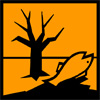Site operatives preparing to take the CSCS test will need to prove that they’re competent in carrying out their tasks safely by passing the CITB Health Safety and Environment test.
The CSCS operative test focuses on a few core health and safety topics and just like the CSCS mock test below you’ll be asked a series of basic health and safety questions and you must choose the most appropriate answer.
In this CSCS mock exam, we’ll be looking into areas such as manual handling, PPE, fire extinguishers, and health and safety signs. These are all core topics covered in the real CSCS test and everyone especially site operatives must have basic knowledge about these topics.
Some questions will require a single answer and some will require multiple answers, questions that require multiple answers will have a green reminder next to them. All answers to this mock exam will be revealed at the end of the test.
1. The health and safety sign below is used to indicate:

a. Fire hose location
b. Fire assembly location
c. Fire extinguisher location
d. Fire alarm point
2. What should you do if you discover a child wandering around on a construction site?
a. Escort the child to safety immediately
b. Just ignore it as it’s not your problem
c. Find your supervisor and report it
d. Find your site manager and report it
3. What does the health and safety sign below mean?

a. Dangerous to the environment
b. Hot liquid
c. Corrosive
d. Irritant
4. What does the health and safety sign below mean?

a. Dangerous to the environment
b. No fishing in this area
c. Do not dump refuse here
d. Protected wildlife area
5. If high visibility clothing is needed to carry out your work, who should provide this?
a. Your employer needs to provide it and then have the cost deducted from your wages
b. Your local job centre will provide this
c. Your employer needs to provide this
d. You need to buy your own
6. To help prevent injuries caused by manual handling you should do all the following EXCEPT:
a. Learn proper lifting and carrying techniques
b. Use lifting equipment
c. Disperse your items into smaller loads
d. Carry as many items as possible to get the task completed faster
7. Class B fires are fires involving all of the following except? Choose two answers.
a. Kerosene
b. Propane
c. Gasoline
d. Cooking oil
8. Which class of fire do magnesium and aluminium materials fall under?
a. Class D
b. Class B
c. Class A
d. Class F
9. Which of these two types of fire extinguishers are most suitable for use on electrical fires? Choose two answers.
a. Water
b. Foam
c. Wet Chemical
d. CO2
e. Dry Powder
10. In the event of a fire you should do all the following EXCEPT:
a. Exit the building immediately using the nearest lift
b. Call the fire brigade
c. Operate the nearest fire alarm
d. Tackle the fire if safe and trained to do so
